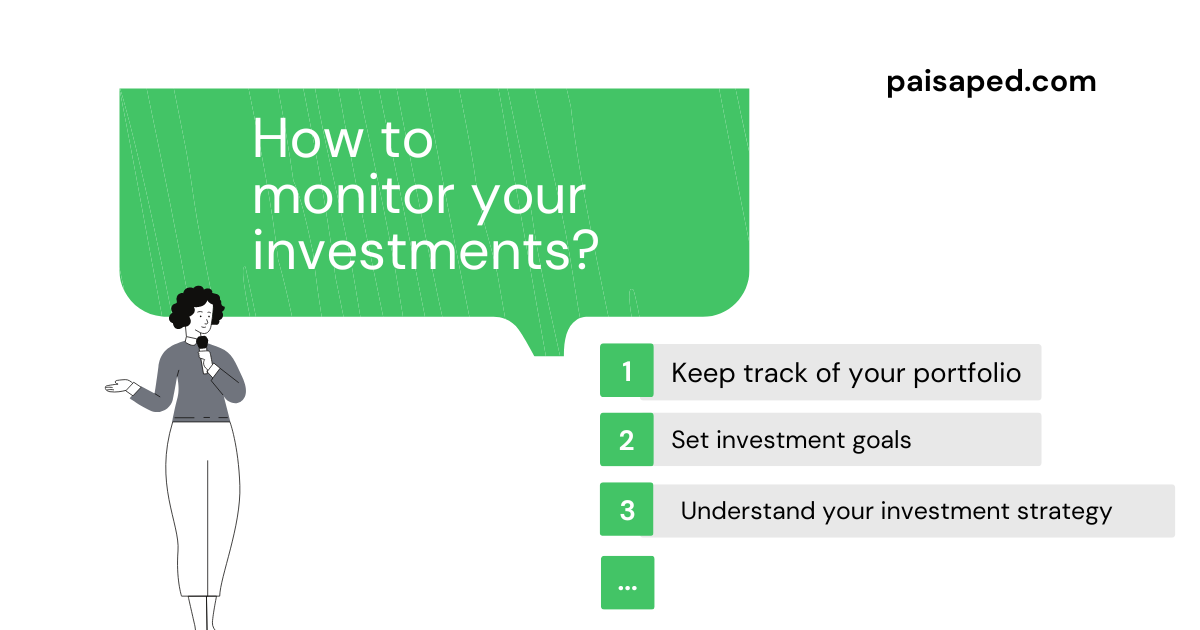Investing can be a great way to grow your wealth over time, but it’s important to monitor your investments regularly to ensure that they’re performing as expected. Monitoring your investments can help you identify trends, spot potential issues, and make informed decisions about whether to buy, hold, or sell your investments. In this post, we’ll go over some tips on how to monitor your investments effectively.
How to monitor your investments?
-
Keep track of your portfolio
The first step in monitoring your investments is to keep track of your portfolio. This means knowing what investments you own, how much you’ve invested in each, and what their current values are. You can do this manually by creating a spreadsheet or using an online portfolio tracking tool. By keeping track of your portfolio, you can easily see how your investments are performing and whether any adjustments need to be made.
-
Set investment goals
Before you start investing, it’s important to set investment goals. This includes determining what you want to achieve through your investments, such as building wealth for retirement, saving for a down payment on a home, or paying for your child’s education. Once you have a clear idea of your investment goals, you can choose investments that align with those goals and monitor their performance accordingly.
-
Understand your investment strategy
Different investment strategies come with different risks and rewards. It’s important to understand the investment strategy you’re using and the risks involved. For example, if you’re investing in stocks, you should understand the company’s financial performance, industry trends, and the overall market conditions that can impact the stock’s price. Similarly, if you’re investing in mutual funds or exchange-traded funds (ETFs), you should understand the fund’s investment objectives, fees, and past performance.
-
Monitor market trends
The stock market can be unpredictable, and it’s important to stay informed about market trends that can impact your investments. This includes keeping an eye on the performance of major stock indexes like the S&P 500, following economic indicators like GDP and inflation rates, and staying up-to-date on industry news that can impact your investments.
-
Review your investments regularly
It’s important to review your investments regularly to ensure they’re still aligned with your investment goals and strategy. This includes reviewing your portfolio’s performance and making any necessary adjustments. For example, if a stock or fund is underperforming, you may need to sell it and invest in a different security that has better potential for growth.
-
Consider working with a financial advisor
If you’re new to investing or find it challenging to monitor your investments on your own, consider working with a financial advisor. A financial advisor can help you develop an investment strategy, monitor your portfolio, and make informed decisions about buying, holding, or selling investments.
Conclusion
In conclusion, monitoring your investments regularly is an essential part of successful investing. By keeping track of your portfolio, setting investment goals, understanding your investment strategy, monitoring market trends, reviewing your investments regularly, and considering working with a financial advisor, you can stay informed and make informed decisions about your investments.
Liked our article ? Subscribe to get weekly updates

